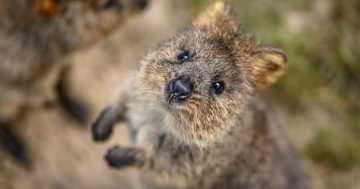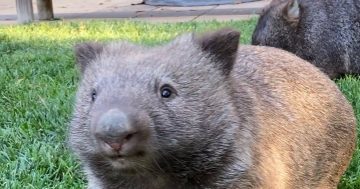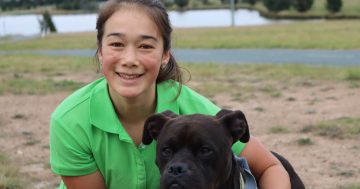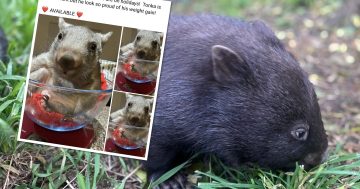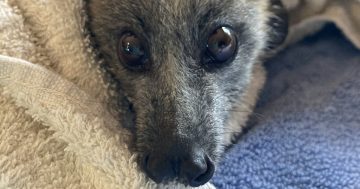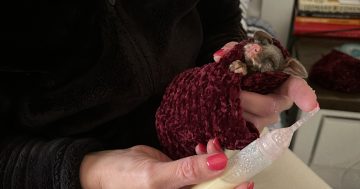
Wombats are increasingly under pressure from loss of habitat and urban development, as are other wild things in the ACT. Photos: Supplied.
A lethal combination of drought and development is taking its toll on the Bush Capital’s animal populations and the too few volunteers caring for the sick and injured.
With the drought driving many species into the suburbs and on to road verges looking for feed, the ACT is seeing record numbers of wildlife, particularly kangaroos and wombats, ending up as roadkill but with joeys surviving.
The march of suburbs to provide new housing is also seeing habitat loss, particularly old trees that provide homes for native birds, and pressurising areas where wombats range.
ACT Wildlife says its volunteer team of about 75 is the same size as it was three years ago but the number of animals they are caring for has doubled. Last year it took about 10,000 calls and received 2,330 animals.
President Marg Peachey, who used to run the now-defunct RSPCA Wildlife before helping to set up ACT Wildlife in 2013, said the group desperately needed more volunteers and corporate sponsors to not only help care for animals but also to take calls on its 24-hour hotline and provide transport, and defray the cost of equipment and feed.
“Without the phone operators we would not be able to help native animals in distress, and for every call in there can be several calls out trying to find an available volunteer to assist. There are never enough people to help. These calls, and associated rescues, were taken by around 30 volunteers, some of whom are also carers,” she said.
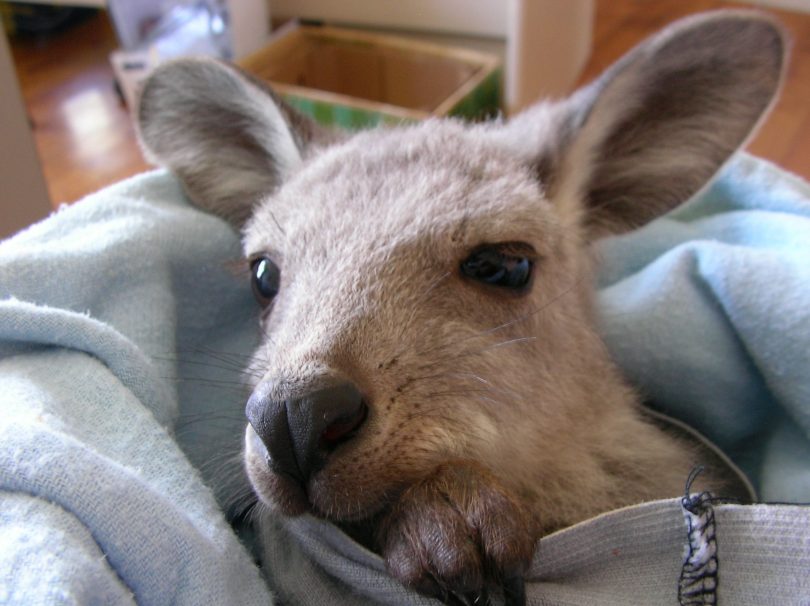
The ACT is seeing record numbers of wildlife, particularly kangaroos and wombats, ending up as roadkill but with joeys surviving.
The situation had also go to the point that the ACT needed its own wildlife hospital along the lines of those at Australia Zoo in Queensland, Taronga Park in Sydney, Western Plains in Dubbo and Healesville Sanctuary in Victoria.
At present it is a dream, but Ms Peachey believed government, which has supported the group with grants, or a philanthropist or corporate sponsor could capitalise on the Bush Capital image by helping to establish such a much-needed facility.
“Because then we could attract a vet instead of having to all the time go to our local vets,” she said.
Out of the 75 volunteers, only 45 are actual carers, looking after injured, sick or orphaned animals on their own properties.
While ACT Wildlife is not licensed to care for injured eastern grey kangaroos because they are culled in the ACT, surviving joeys from the many car accidents do find their way to Wildcare Queanbeyan across the border where they can eventually be released on carers’ properties.
About 13 have gone to Queanbeyan this year, but that’s not counting those also rescued by ACT rangers.
About 80 per cent of animals cared for by ACT Wildlife are birds, followed by orphaned possums, wombats and the odd wallaby and wallaroo, as well as fruitbats, micro bats, and reptiles.
“Most mammals come to us because of vehicle strikes which causes pouched young to be orphaned. Many birds are orphaned because they fall, are pushed, or picked up by a predator (cat, dog, currawong etc). Flying foxes are caught in inappropriate fruit tree netting or caught on barbed wire. Reptiles are caught by cats and dogs or dug up in the garden and injured,” she said.
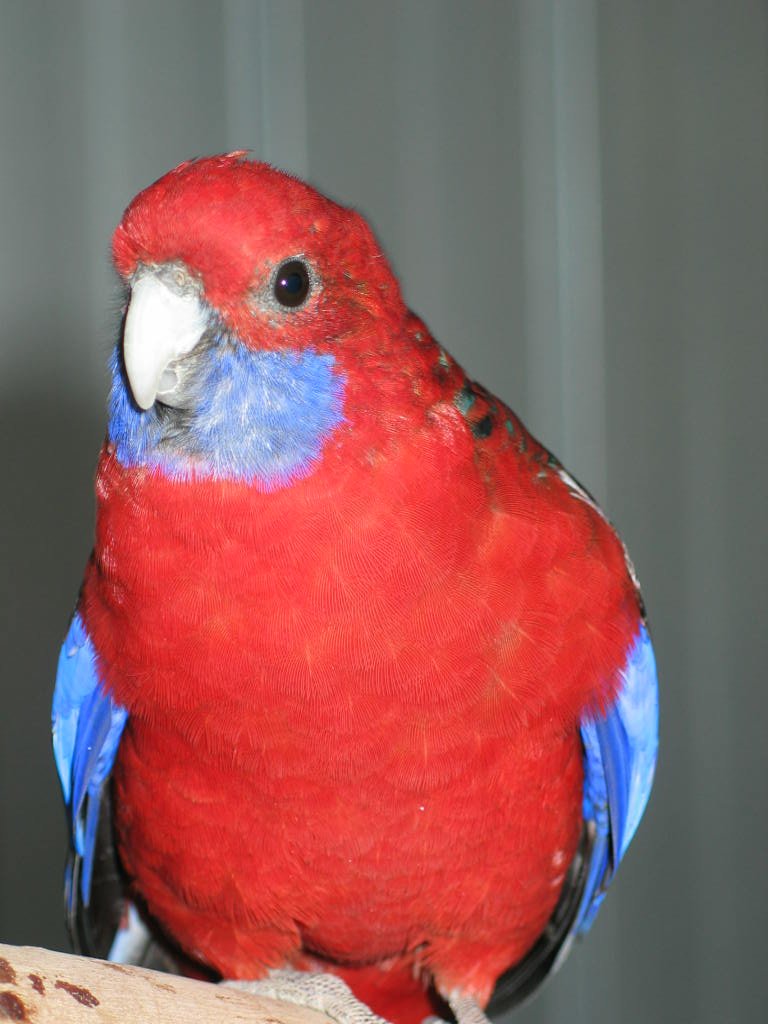
About 80 per cent of animals cared for by ACT Wildlife are birds.
Ms Peachey said the group was caring for a lot more orphaned wombats, mostly from the south side where there has been urban expansion along the Murrumbidgee River.
“They’ve been hit by cars, the mums killed and severely maimed and the joeys need to go into care,” she said.
“Pouches are wonderful things, very rarely is a joey severely damaged when mum is killed.”
Ms Peachey said the group trained volunteers and had four orientation sessions a year, with the next on 24 November.
The training was species-specific, and some resources including aviaries, hot boxes, carry cages, towels and specialist milks were supplied.
But the group was calling for sponsors for the “big stuff” and desperately needed an ACT Wildlife vehicle because volunteers were using their own vehicles and paying for petrol.
While the group had trained many volunteers, the churn of people through the ACT meant it had been difficult to maintain its numbers.
For more information about becoming a volunteer or sponsor, go here.












